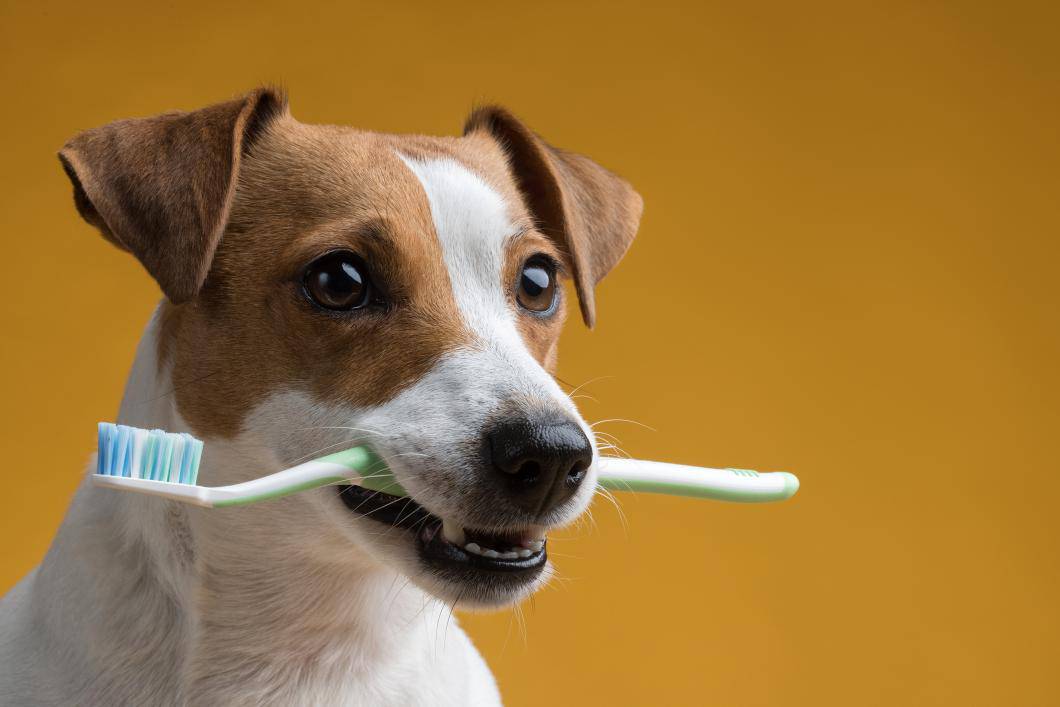
February is National Pet Dental Health Month, and it is the perfect time to prioritize your pet’s oral health—a crucial yet often overlooked aspect of their overall care. With most pets experiencing some form of dental disease by age three, regular dental care is essential for their comfort and long-term health. Join Orovillle Animal Health Center in learning how you can better provide the best pet dental health care for your furry friends.
Why Pet Dental Health Matters
Neglecting your pet’s oral health can lead to serious consequences:
- Dental disease causes pain – The buildup of plaque and tartar damages the periodontal ligament, which causes loose teeth, inflammation, and significant discomfort. This can make it difficult or uncomfortable for your pet to chew.
- Dental disease leads to bad breath – Bacteria in the mouth release sulfur, resulting in unpleasant odors that make cuddling less appealing. No one wants to share the bed with dog breath!
- Dental disease impacts overall health – Left untreated, oral bacteria can affect the surrounding bone, leading to infection. They can also enter the bloodstream and spread throughout the body, potentially damaging the heart, liver, and kidneys.
We know that dental disease in our companion animals can shorten lifespan and lower quality of life. By taking control of your pet’s wellness care, though, you can be proactive about keeping your pet happy.
How to Keep Your Pet’s Teeth Healthy
Taking steps to maintain your pet’s dental health is easier than you might think. Our favorite pet oral care tips include:
- Staying on top of wellness exams – These annual-to-biannual visits allow us to evaluate your pet’s oral health and identify problems early. They are also great opportunities for us to collaborate as your pet’s care partners.
- Schedule regular professional cleanings – Thorough oral exams and cleanings under anesthesia allow us to inspect and treat areas of the mouth that aren’t visible while your pet is awake. Did you know that the majority of a pet’s tooth is under the gumline and can only be accurately evaluated via radiographs? Annual cleanings are often recommended.
- Brush your pet’s teeth at home – Brushing can slow the progression of dental disease, and keep you aware of changes in your pet’s mouth. Use pet-safe toothpaste, and let us teach you how to make the process stress-free.
- Use recommended dental products – Dental treats, special diets, and oral rinses approved by the Veterinary Oral Health Council (VOHC) can complement your pet’s oral care routine.
Imagine never seeing a dentist—many pets go their entire lives without professional dental care. With routine dental care, though, you can add years to your pet’s life and improve their quality of life.
Contact us today to schedule your pet’s dental checkup or to learn more about celebrating Pet Dental Health Month. Let’s work together to keep our pets healthier and happier, one tooth at a time!
